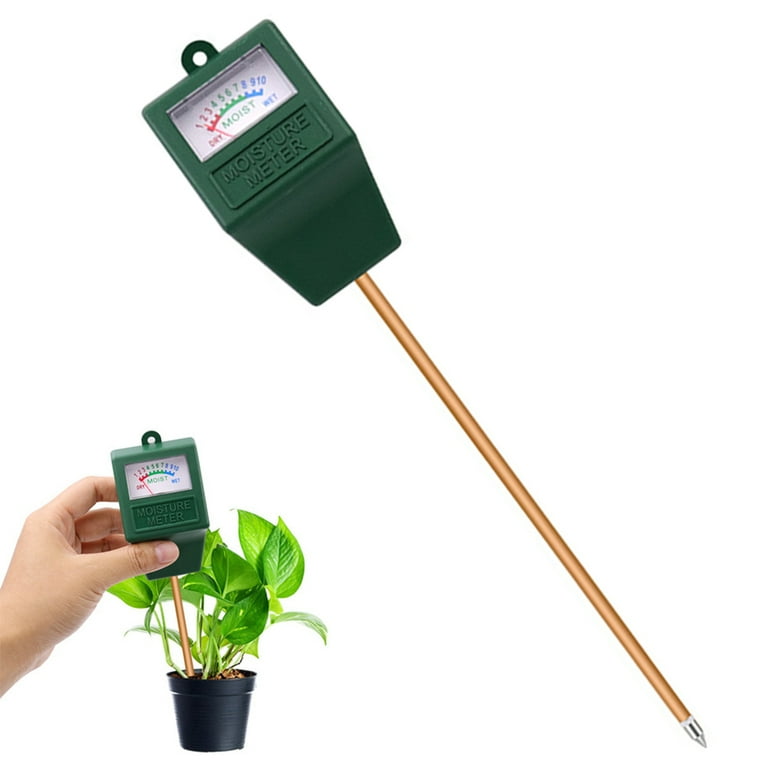The Ultimate Guide to Selecting the Right Moisture Meter for Your Requirements
The Ultimate Guide to Selecting the Right Moisture Meter for Your Requirements
Blog Article
The Ultimate Guide to Moisture Meters: A Comprehensive Review and Exactly How They Can Conserve You Cash
Wetness meters offer as indispensable tools in spotting and keeping an eye on moisture content in products, helping in protecting against costly damages and guaranteeing the high quality of items. Comprehending the nuances of different types of wetness meters, their applications, and the potential cost-saving benefits they supply can be a game-changer for professionals and organizations alike.
Sorts Of Dampness Meters
Different sorts of dampness meters are readily available for various applications in various industries. One common kind is the pin-type wetness meter, which gauges the electric resistance between 2 pins inserted into a material. This kind appropriates for timber, drywall, and various other building materials. Pinless dampness meters, on the other hand, use electro-magnetic sensor plates to check a larger area without creating damage to the product's surface area. Moisture Meter. These meters are excellent for rapidly examining moisture levels in large locations such as wall surfaces and floors.

In addition, there are also specialized wetness meters designed for particular products like hay, grain, or soil. These meters offer accurate wetness analyses customized to the special buildings of the material being tested. Infrared moisture meters determine the thermal buildings of a material to determine its dampness content non-invasively, making them useful for applications where pin or pinless meters might not be suitable. Comprehending the various sorts of moisture meters available can assist sectors choose the most appropriate device for their particular dampness dimension demands.

Benefits of Making Use Of Moisture Meters
Moisture meters provide vital benefits in properly keeping track of and evaluating moisture levels in varied products and settings. One of the key advantages of utilizing moisture meters is the prevention of possible damages triggered by excess moisture.
Additionally, using moisture meters can result in enhanced energy performance. By determining areas with high moisture degrees, such as leakages or inadequate insulation, changes can be made to boost energy conservation and reduce energy costs. In agricultural setups, wetness meters play a vital function in optimizing plant yields by enabling farmers to check dirt moisture degrees and make educated irrigation choices. Overall, the advantages of utilizing moisture meters extend throughout different markets, providing cost-efficient solutions and advertising better top quality control methods.
How to Pick the Right Dampness Meter
When selecting a moisture meter, it's important to ensure that the meter is suitable for the details product you will be testing. Various materials have varying electric residential or commercial properties that can affect dampness analyses, so choosing a navigate to these guys meter designed for your product is vital for precise results. By thoroughly evaluating these variables, you can pick a dampness meter that fulfills your demands and gives exact dampness dimensions for your tasks.
Proper Methods for Wetness Meter Use

Expense Cost Savings With Dampness Meter Applications
How can the tactical use of wetness meters lead to considerable cost financial savings throughout different industries? In the farming sector, wetness meters aid in identifying the optimal time for harvesting plants, stopping excess or over-drying wetness that can impact the final item's high quality.
Similarly, in building and construction, wetness meters help prevent expensive damages by identifying dampness levels in building materials, such as timber or find out concrete, which can result in architectural issues otherwise addressed immediately. By identifying issue locations at an early stage, contractors can take restorative actions to prevent extensive repair work or substitutes, ultimately saving time and money.
In addition, in the food processing industry, dampness meters are vital for keeping track of item high quality and guaranteeing compliance with safety and security laws. By properly measuring wetness web content in food, makers can protect against putridity, preserve quality, and minimize waste, causing significant expense savings. Generally, the strategic application of wetness meters is a valuable financial investment that can result in significant cost reductions and improved effectiveness throughout numerous markets.
Conclusion
Finally, dampness meters are beneficial tools for detecting and determining look at here wetness degrees in numerous materials. By using the best dampness meter and following appropriate strategies, users can properly stop costly damages triggered by excess dampness. Purchasing a high quality dampness meter can cause considerable cost savings in the future by identifying prospective problems early on and making it possible for prompt remediation. Ultimately, wetness meters are necessary tools for keeping the honesty and long life of frameworks and products.
Moisture meters offer as essential tools in finding and monitoring moisture web content in materials, aiding in preventing costly problems and making sure the top quality of products. Infrared wetness meters determine the thermal buildings of a material to establish its moisture material non-invasively, making them valuable for applications where pin or pinless meters may not be appropriate.Dampness meters provide very useful advantages in precisely analyzing and keeping track of wetness degrees in varied materials and settings. In farming settings, wetness meters play a crucial role in enhancing plant yields by enabling farmers to check dirt moisture levels and make informed irrigation choices.In verdict, dampness meters are valuable devices for measuring and spotting wetness degrees in different products.
Report this page